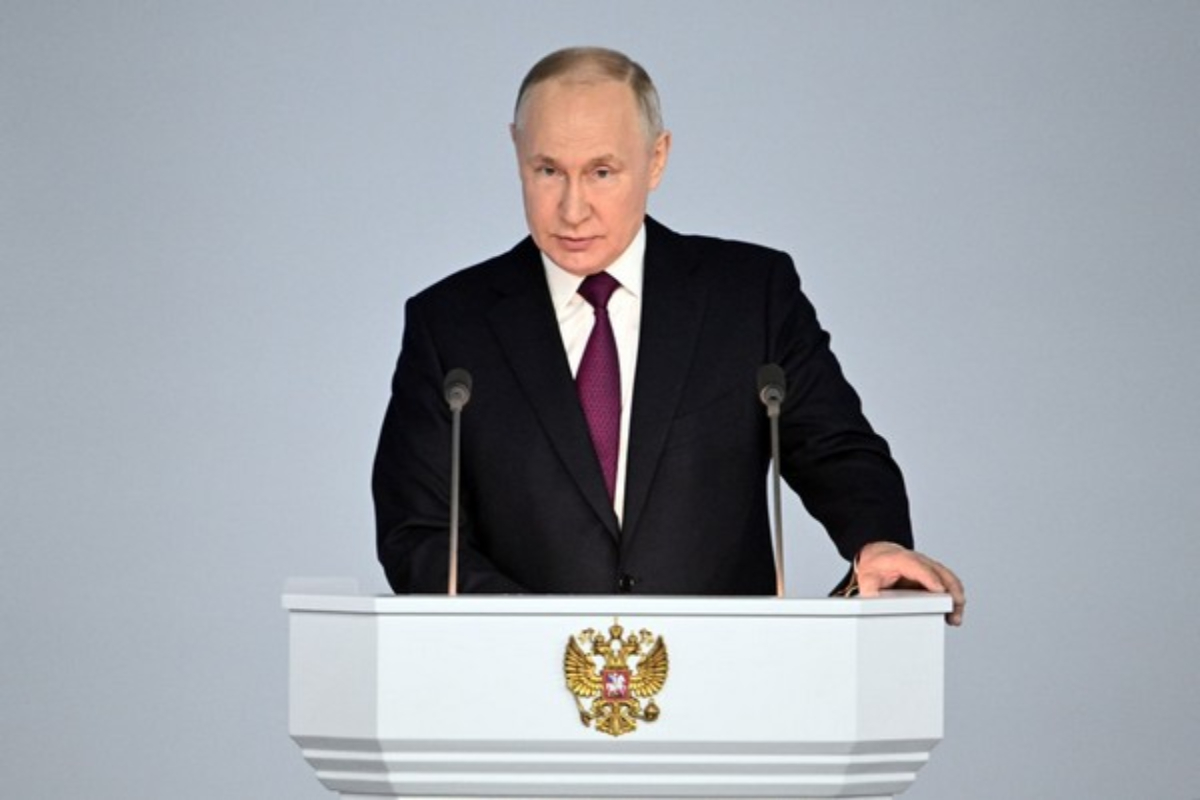Washington is putting Europe in its place
The Ukraine Defence Contact Group (UDCG) was the first event on European soil for the new Donald Trump administration followed closely by the Munich Security Conference.
Amidst the chaos and horror of the recent massacre at a Moscow concert hall, one thing is abundantly clear: the finger-pointing and blame game have already begun.

Russian President Vladimir Putin [Photo : ANI]
Amidst the chaos and horror of the recent massacre at a Moscow concert hall, one thing is abundantly clear: the finger-pointing and blame game have already begun. As the smoke clears and the grim reality of over a hundred lives lost sinks in, the question of who is responsible looms large. Islamic State’s claim of responsibility has sent shockwaves through an already shaken community, but the attempt by Russian President Vladimir Putin to implicate Ukraine adds another layer of complexity to an already murky situation.
It’s easy to see why Mr Putin would want to shift the blame away from his own doorstep. Such is the tangled web of geopolitics and power dynamics at play. The Kremlin’s involvement in conflicts, such as its contentious actions in Ukraine and its intervention in Syria, has left a trail of resentment and animosity. Russia’s assertive foreign policy has garnered both allies and adversaries, contributing to a complex landscape where alliances shift and tensions simmer. The timing of the attack, coming just weeks after warnings from Western embassies of potential terrorist threats in Moscow, adds another layer of intrigue.
Advertisement
It begs the question: could this massacre be a calculated move by those seeking to destabilise Russia’s power and influence? While Islamic State’s assertion of responsibility cannot be dismissed outright, it’s imperative to explore alternative motives and potential actors involved. The interconnected nature of global politics demands a nuanced understanding, one that acknowledges the multifaceted nature of conflict and the myriad forces at play. The timing of the attack, just weeks after warnings, raises suspicions. Could this have been a calculated move by those looking to undermine Russia’s stability and sow chaos within its borders? The fact that the venue targeted was owned by a businessman with close ties to Mr Putin only adds fuel to the fire.
Advertisement
But perhaps most concerning is the attempt by Mr Putin to pin the blame on Ukraine. The suggestion that Ukraine provided an escape route for the terrorists, without providing any evidence to support such a claim, reeks of political manoeuvring. It is a dangerous game to play, one that risks escalating tensions between the two nations at a time when diplomatic efforts are needed more than ever. Ukraine’s swift denial of any involvement in the attack should come as no surprise. The last thing the war-torn nation needs is to be dragged into a conflict of this nature, especially when it relies so heavily on support from the West. On the face of it, Ukraine has little reason to target civilians.
As the investigation into the massacre unfolds, it is crucial that we resist the temptation to jump to conclusions or assign blame without concrete evidence. The lives lost in this senseless act of violence deserve justice, and that can only be achieved through a thorough and impartial investigation.
Advertisement